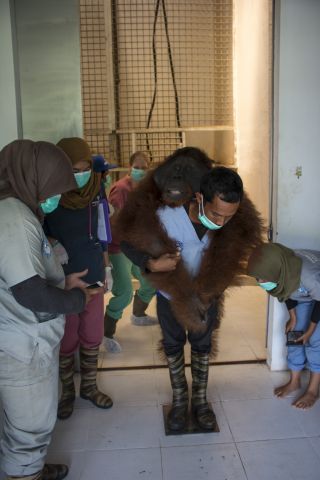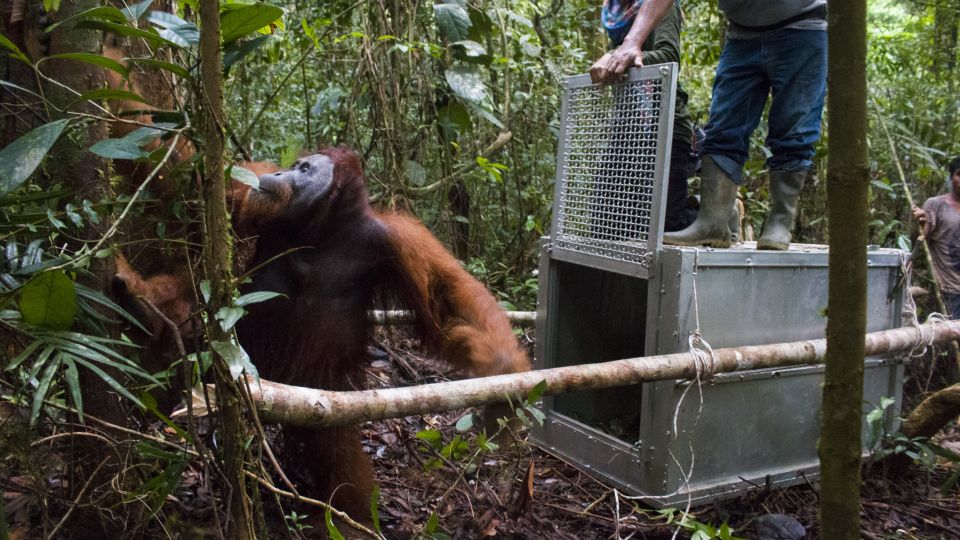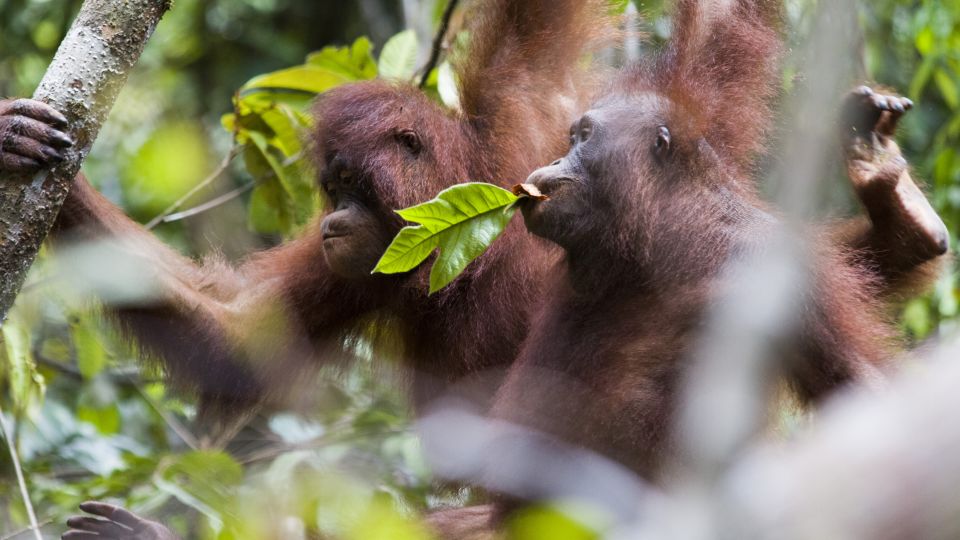
Three rescued orangutans in the care of our rehabilitation centre in West Borneo have made an incredible journey to their new home in a national park. Male Sabtu and females Butan and Marsela spent several days being taken by road, river and on foot to reach the release site deep in the heart of Bukit Baka Bukit Raya National Park (BBBR NP.)
The male, known as Sabtu (Saturday), is a magnificent wild orangutan of about 25 years old with large cheekpads. IAR’s Human Orangutan Conflict Team rescued him in March this year from a village plantation in Kalibuntu, not far from our centre. Sabtu had gone in search of food after his home in the forest was destroyed by fire. Thankfully, rather than take the law into their own hands, local residents asked our team to remove him. They found him resting on his nest in the banana trees. Team leader Argitoe shot him with an anaesthetic dart so that he could be brought back to the centre for a health check and treatment before being returned to the wild.
Unlike Sabtu, Butan and Marsela were only two or three years old when they were rescued. Having been taken from their mothers when they were still babies, they had never learnt the skills they would need to survive in the forest. They were both found in areas where the forest had been destroyed to make way for palm oil plantations.

When she was rescued in 2011 Butan was in a shocking condition and in danger of dying of malaria. She was put straight into intensive care at IAR’s clinic and needed six months’ treatment to cure her of the disease.
Marsela was also found alone in a palm oil plantation belonging to PT Kayung Agro Lestari (KAL) in Ketapang. “In their natural habitat, baby orangutans live with their mothers from birth until the age of 7-8 years,” said Gail Campbell-Smith, Programme Manager for IAR Indonesia. “So when a baby orangutan is found alone, the mother is almost certainly dead.”
After a period in quarantine at IAR’s centre, Butan and Marsela started their rehabilitation in “forest school” where they learnt to climb, forage and build nests. Once they mastered their survival skills they were moved to the pre-release island where they stayed in the forest day and night and their progress continued to be monitored. IAR’s medical team carried out regular veterinary checks to ensure that all three orangutans were in good condition and ready to be returned to their natural habitat.

“The orangutans have been through all our veterinary procedures and we have conducted several tests to ensure that they are sufficiently healthy to return to the wild,” said vet Ayu Budi Handayani, IAR’s Animal Care Manager. The IAR team left the centre in Ketapang on the evening of Friday 24 June after a ceremonial meeting attended by the Head of the Forestry Department, together with representatives of the Conservation and Natural Resources Conservation Section of West Kalimantan (Kalbar NRCA) and the BBBR National Park. The journey involved travelling by road for 40 hours, followed by a boat trip downriver for one hour and then a four hour walk with 12 porters. Sabtu was released on 28 June and he went straight out of his transport crate and climbed high up into the trees.
Marsela and Butan were released a day later after a night’s rest in a habituation cage. When the door was opened, they too climbed straight up into the tall trees to explore the area around the release site and started feeding. This was an encouraging sign that the orangutans would be able to survive in the location.

